ESP-ENG Manifiesto contra la obsolescencia
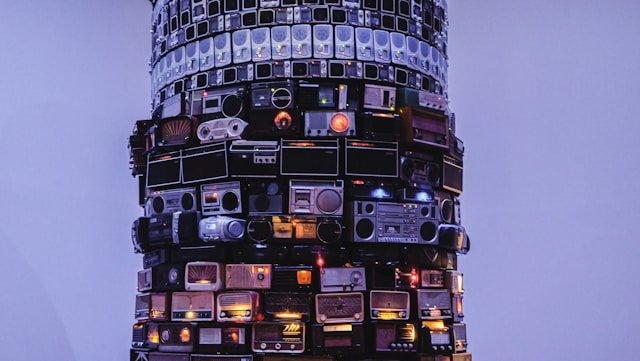
Manifiesto contra la obsolescencia
Sea con ustedes la dicha, la virtud de vivir en la utilidad, en una existencia con sentido. Hoy es Viernes Santo, este día trae a mi cabeza cientos de imágenes, momentos de lo que parece ser una vida pasada, de momentos, lugares y experiencias sensoriales que ya no van a regresar.
Me siento a escribir y, como las musas de la inspiración rechazan mi invitación, decido buscar el calendario de nuestra comunidad, esa fuente que parece inagotable de temas asignados diariamente. Leo el tema: Viernes 18, una reflexión sobre la obsolescencia programada.
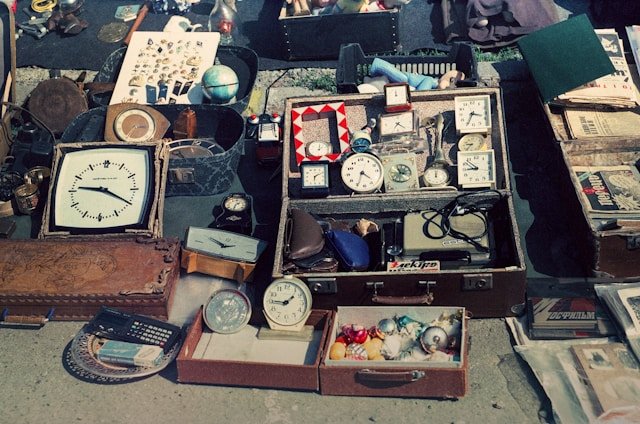
📸 https://unsplash.com/es/fotos/una-coleccion-de-relojes-antiguos-zXf71iFsjK8
Pienso y medito las letras frente a mí, no puedo evitar pensar que, como los productos, los humanos parecemos máquinas destinadas a dejar de funcionar en algún momento, presos en la finita existencia, en la levedad del ser. Todo en esta vida está destinado a perecer y nosotros no somos la excepción. El problema siempre es cuando ocurre antes de tiempo. Como productos desechables, los días pasan y se quedan lejanos en la memoria hasta ser olvidados. Algún día este viernes solo será un recuerdo y después llenará la nave del olvido.
Estamos fabricados para morir y fabricado para morir también está cada objeto que nos rodea. Pero, a diferencia de tu lavadora, tu nevera o ese teléfono que sostienes entre las manos, nuestra fecha no ha sido impuesta por un creador en el afán de, el próximo año, venderte una innecesaria y a veces ni mejorada versión de lo mismo que ya tienes hoy.
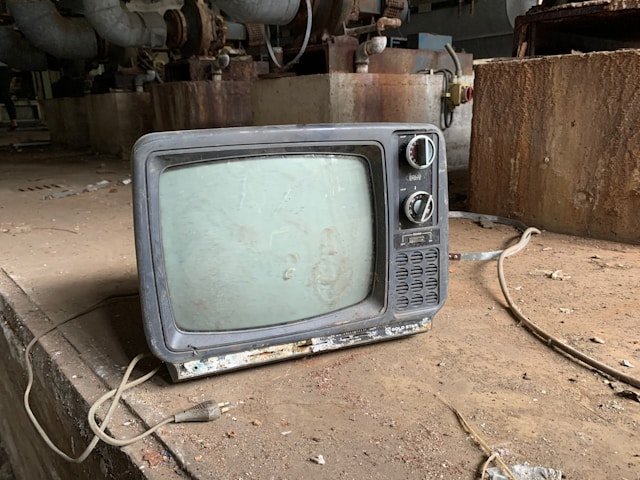
📸https://unsplash.com/es/fotos/televisor-crt-gris-sobre-suelo-marron-i-9ZXVVYB4U
Los objetos perecen por muchas razones y no todas son una dependencia a la funcionalidad o la utilidad. En el mundo de los objetos hay muchas formas de perecer, de ser obsoleto. Piezas que son, a conciencia de los fabricantes, irreparables. Unidades selladas. Materiales frágiles. Tecnologías efímeras. Y lo peor, modas y tendencias que son puestas en nuestro producto por manos invisibles, asegurando convertirnos en dependientes de ciclos viciosos de codependencia impuesta. Si hay algo seguro es que tú y yo, todos estamos en este círculo y no hay una forma fácil de salir.
Pero si por un día los tenemos en la memoria y en el recuerdo y nos prohibimos olvidar, hay tanto que podemos hacer para al menos extender el letargo y frenar la obsolescencia programada, la nuestra y la de los objetos que nos rodean. Comencemos por nosotros mismos. En nosotros, hábitos saludables, ejercicio, momentos de alegría pueden ayudarnos a extender nuestra vida. En los objetos es aún más fácil. Que vivan las segundas oportunidades de las cosas que nos rodean. La ropa usada. El teléfono convertido en reproductor musical. La vieja televisión que, por ser más pequeña, no hace que las noticias nos lleguen diferente, ni más alegres ni más tristes. Hay belleza en lo usado, en lo desgastado, y hay que aprender a apreciarla. Las grietas en un objeto son arrugas en el rostro. Las arrugas, aunque sean feas, hay que aprender a amarlas y quererlas como parte esencial de quienes somos.
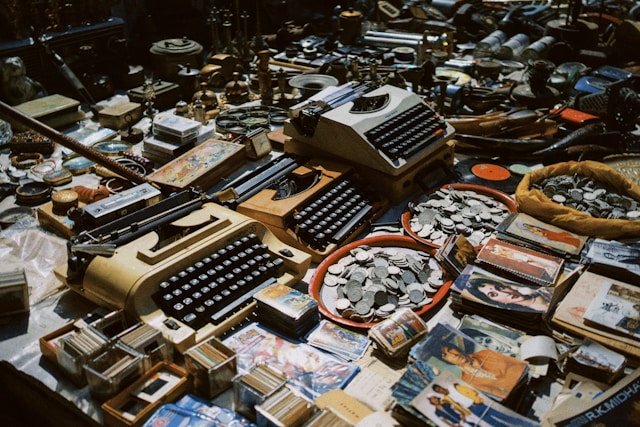
📸https://unsplash.com/es/fotos/un-monton-de-diferentes-tipos-de-elementos-en-una-mesa-2jxhNydf46Y
Queremos y amamos conservar lo que nos cuenta historia y lo que nos ha sido útil. Es por eso que crea historia con tus objetos, no los uses solo por usarlos, por una utilidad impuesta. Planta en ellos semillas de la utilidad. Viene a mí la historia de un buen amigo convertido en hermano sin lazos sanguíneos que se negaba a cambiar su teléfono móvil incluso después de tener la oportunidad de uno mucho mejor. Me decía que a este teléfono le tenía cariño, que era suyo y lo tenía hace años. Hasta ahora seguía cumpliendo todas sus funciones, no lo iba a abandonar mientras le siguiera funcionando para llamar. No necesitaba nada más. Sin dudas, mi amigo nunca fue un esclavo ni de la tecnología ni de la obsolescencia. Siempre imagino que el ser humano sí quiere conservar lo que tiene, sus objetos, pero la sociedad y las corporaciones nos obligan al olvido y reemplazo inminente.
Aquí llevamos a balanza esa práctica de crear objetos y productos de limitada vida a bien de un mercado, pero con riesgo a nuestra propia subsistencia futura, con implicaciones de índole ética y ambiental. Basura que estará abarrotando contenedores o que incluso será retirada de tiendas antes de llegar a alguien que le sea útil. Nuestra tierra, saqueada por tener y tener más y más rápido. Renovamos cada cierto tiempo lo que sigue funcionando por el temor de quedarnos atrás, de ser nosotros mismos los obsoletos. Pero tenemos derecho y tenemos conciencia. Tenemos que exigir, hacer batalla en cada frente.
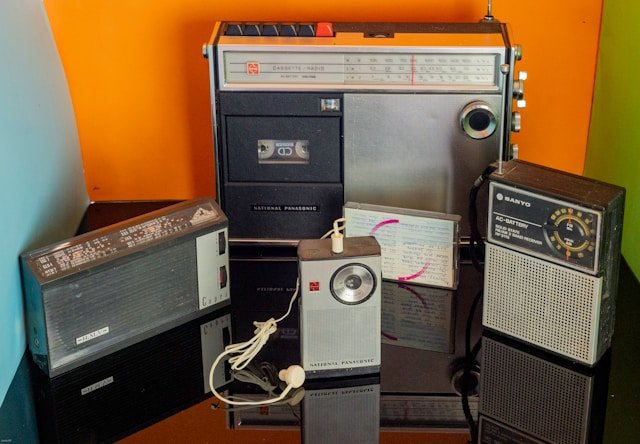
📸https://unsplash.com/es/fotos/un-monton-de-viejas-radios-sentadas-sobre-una-mesa-UFcZz3_uRXc
En un último intento, como luz de esperanza, tratamos por cualquier medio reparar y extender vidas útiles, tanto nuestra como de objetos. Huir de la obsolescencia en la programación. Cada objeto que mantenemos con vida más allá del tiempo que alguien le impuso es una declaración a gritos de principios e intereses, una oda a la vida, a la nuestra y a la de lo que nos rodea. Un manifiesto de nuestra lucha ante la imposición de conductas que son inhumanas desde cualquier punto de vista. Cada objeto que sobrevivió a la corriente del consumo sin conciencia es un acto de desafío y un himno a la vida.

Manifesto against obsolescence
Be with you the joy, the virtue of living in utility, in a meaningful existence. Today is Good Friday, this day brings to my head hundreds of images, moments of what seems to be a past life, of moments, places and sensory experiences that will no longer return.
I sit down to write and, as the muses of inspiration refuse my invitation, I decide to look for the calendar of our community, that seemingly inexhaustible source of daily assigned themes. I read the topic: Friday the 18th, a reflection on planned obsolescence.

📸 https://unsplash.com/es/fotos/una-coleccion-de-relojes-antiguos-zXf71iFsjK8
I think and ponder the letters in front of me, I can't help but think that, like products, we humans seem like machines destined to stop working at some point, imprisoned in finite existence, in the lightness of being. Everything in this life is destined to perish and we are no exception. The problem is always when it happens before its time. Like disposable products, the days pass and remain distant in memory until they are forgotten. Someday this Friday will only be a memory and then it will fill the ship of oblivion.
We are made to die and every object around us is also made to die. But, unlike your washing machine, your refrigerator or that phone you hold in your hands, our date has not been imposed by a creator in the eagerness to, next year, sell you an unnecessary and sometimes not even improved version of the same thing you already have today.

📸https://unsplash.com/es/fotos/televisor-crt-gris-sobre-suelo-marron-i-9ZXVVYB4U
Objects perish for many reasons and not all of them are a dependence on functionality or utility. In the world of objects there are many ways to perish, to become obsolete. Parts that are, in the conscience of the manufacturers, irreparable. Sealed units. Fragile materials. Ephemeral technologies. And worst of all, fashions and trends that are placed on our product by invisible hands, ensuring that we become dependent on vicious cycles of imposed codependence. If there is one thing for sure, it is that you and I, we are all in this circle and there is no easy way out.
But if for one day we hold them in memory and recall and forbid ourselves to forget, there is so much we can do to at least extend the lethargy and curb programmed obsolescence, our own and that of the objects around us. Let's start with ourselves. In ourselves, healthy habits, exercise, moments of joy can help us extend our life. In objects, it is even easier. Let us live the second chances of the things around us. The used clothes. The telephone turned into a music player. The old television that, because it is smaller, does not make the news reach us differently, neither happier nor sadder. There is beauty in the used, in the worn, and we must learn to appreciate it. Cracks in an object are wrinkles in the face. Wrinkles, even if they are ugly, we must learn to love and cherish them as an essential part of who we are.

📸https://unsplash.com/es/fotos/un-monton-de-diferentes-tipos-de-elementos-en-una-mesa-2jxhNydf46Y
We want and love to keep what tells us history and what has been useful to us. That's why create history with your objects, don't use them just for the sake of using them, for an imposed utility. Plant in them seeds of usefulness. The story comes to me of a good friend turned brother without blood ties who refused to change his cell phone even after having the opportunity to get a much better one. He told me that he was fond of this phone, that it was his and he had it for years. So far it was still fulfilling all its functions, he was not going to give it up as long as it still worked for him to call. He didn't need anything else. Undoubtedly, my friend was never a slave to technology or obsolescence. I always imagine that human beings do want to keep what they have, their objects, but society and corporations force us to imminent oblivion and replacement.
Here we take to scale this practice of creating objects and products of limited life for the sake of a market, but at the risk of our own future subsistence, with ethical and environmental implications. Garbage that will be crowding containers or that will even be removed from stores before it reaches someone who is useful to them. Our land, plundered for having and having more and faster. We renew every so often what is still working for fear of being left behind, of being obsolete ourselves. But we have the right and we have conscience. We have to demand, to do battle on every front.

📸https://unsplash.com/es/fotos/un-monton-de-viejas-radios-sentadas-sobre-una-mesa-UFcZz3_uRXc
In a last attempt, as a light of hope, we try by any means to repair and extend useful lives, both ours and objects. Flee from obsolescence in programming. Each object we keep alive beyond the time someone imposed on it is a screaming declaration of principles and interests, an ode to life, our own and that of what surrounds us. A manifesto of our struggle against the imposition of behaviors that are inhumane from any point of view. Each object that survived the current of consumption without conscience is an act of defiance and a hymn to life.
Translated with DeepL.com (free version)
Posted Using INLEO